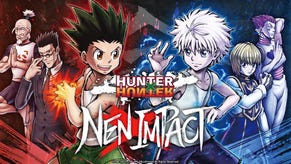"Not your regular game story" - writing Metro: Last Light
Metro: Last Light is going to raise the bar for writing in games. VG247's Dave Cook speaks with author of the Metro games and novels Dimitry Glukhovsky about penning his dark, frequently shocking tale.
Last month I was lucky enough to play three hours of Metro: Last Light. Within that session I was bombarded with more themes, ideologies and graphic, genuinely harrowing scenes that most games deliver in their entire running time. The rape scene was particularly savage.
It's a rare thing, given how - frankly - s**t game stories can be. Moments that should deliver an emotional sucker punch can feel cheesy or forced, while sentiment is regularly drowned in a sea of bombast, made-to-order characters and the deafening sound of ceaseless gunfire.
If we can't truly invest ourselves in the world of a game then can we really say we give a damn about what's happening to it, or to the plot's leading players? Personally, no, but then again reading and writing are personal, powerful hobbies, and each bears a different impact on the next player.
Metro: Last Light batters your senses with so many themes of varying severity, from the simple sight of loving parents caring for their child in the rusted bowels of a subway station, to seeing live traitors being hurled into a blazing furnace for acts of insolence. It speaks to many people, with a sliding scale of emotions and messages that it can't fail to resonate with everyone on at least one level.
This is a commendable achievement, and it comes from the mind of one man - author of the Metro series of novels - Dimitry Glukhovsky. I managed to corner him for a brief chat during my hands-on time with the game, just to try and get a handle on the various themes at play during 4A Games' shooter.
"The first game Metro 2033 was literally based on my novel Metro 2033," Glukhovsky told me. "Last Light was different else because when they decide to go for a sequel ... I have a book called Metro 2034, but it's not very suitable a story for a shooter. So I decided to create a separate story for the game, and I started writing a plot, then I wrote the dialogue - so I'm responsible for both the ideology, the plot and everything.
"Then I realised that the story was so big - it's much bigger than your usual shooter would contain - and right now I've got a plot and part of the story written for a book called Metro 2035, which will include the story of Metro: Last Light but will be much bigger than that.
"When I was writing the book, I just understood that maybe the story I had in my mind was too big and complicated - and too adult actually, for a shooter game. When you play through Metro: Last Light, it's not your regular game story."
He's not wrong, this is a very different beast to any game I've played this generation from a story-telling perspective. Sure, you can draw parallels between Last Light and Metro 2033 - the station town hubs are still there for example, and are brimming with human stories - but the impact on your senses is tangible, lingering.
As I mentioned in my last hands-on preview, the world of Metro: Last Light is suffering an intense civil war that rages between various factions. They ape real-world groups such as the Nazis, communist parties and more, each bearing conflicting opinions on social tenets as far and as wide as gender equality, class and control.
My session was book-ended with two Metro stations. The first was an impoverished hub full of shanty homes carved into recesses lining the walls, containing both humans and swine for sustenance. It was a depressing, squalid sight, but the people were happy to have a home.
You could see it on the faces of children as they watched jugglers and shadow puppet artists, and in the songs of workers as they sat down for a round of vodka after another day of hard-earned survival. These people had endured and worked together to try and rebuild their shattered world, and to progress from there.
Meanwhile, the station under the Bolshoi Theatre was menacing in a similar vein as BioShock: Infinite's Columbia. It was colourful and clean, with hourly cabaret shows featuring can-can girls. The women danced as soldiers drank grog and ate well, whooping and hollering like jackals. Behind the stage the downtrodden performers prepared for the next show in dank dressing rooms as Nazi troops kept people in line. The contrast was remarkable.
I asked Glukhovsky to discuss the themes of the Metro stations and to explain what he was looking to convey while writing Last Light's script. "It's about humanity repeating the mistakes it has once already committed," he replied, "and not being able to learn from them, then how can we pay for the sins we commit? Is there a way to deserve a second chance, and if we do deserve a second chance are we really smart enough to use it?
"Last Light is - in a way - the story of a man getting a second and last chance to make up for everything he did wrong. Definitely in the background there is a civil war which reflects on the last world war, because the factions in the subway of Moscow reflect - in a characteristic way - the ideologies of the 20th and 21st century.
"The clash in the story of Metro: Last Light is an echo of the clash that the world has seen twice during that time, and the circumstances World War III brings to the Metro. So history is repeating itself and the people are not able to draw a conclusion from it."
There are even strange flashes that trigger in Last Light's protagonist Artyom as he comes across corpses left from the day the bombs fell. They show him visions of their last moments, and one gruesome scene shows a plane full of screaming holiday-makers being vaporised by the nuclear blast. It's horrible, but lends perspective to the world. I asked Glukhovsky if the game delves any deeper into life before the apocalypse.
"I don't go into detail either in the book, nor in the game," he confirmed. "It was World War III that happened, rather than the intrusion of extra-terrestrials or something. Humans are the solely responsible creatures for bringing the world into this condition. I don't give away many details because today, you'd assume that Iraq or North Korea was responsible for it, but this story is perpetual.
"All the news you see on CNN or other world news, they strengthen my story because whoever you see - be it Saddam Hussein or Kim Jong Il - it proves the probability of the world gone to hell and then getting down into the tunnels and catacombs of the subway."
He's not wrong. Given current tensions in North Korea and in the Middle East, people are starting to seriously ask questions about the eventuality of World War III. It feels less like something you hear about in a sci-fi book, movie or game, and more like something that may actually happen in our lifetime. I asked Glukhovsky how deeply real-world tales of conflict have impacted Last Light's creation.
"I've researched lots of stories," he explained. "I need to play the game through once more to see how many of those real-life stories have actually made it into the game. But I was writing for three months, which resulted in over 3,000 spreadsheet cells in Excel for dialogue. That can be anything from "Ouch", to a life story.
"I wrote with a huge extra reserve of stories, from parents protecting their children, people falling in love and in different Metro stations you're going to see each faction - the Nazis, the fascists, the communists and the capitalists. So the personal drama at the stations comes from opting to talk with side characters, so it's not just shooting and running through the game. The world is happening around you and you can go and talk to the people.
"I did everything possible to make this feel like a real world, and that the people who surround you give you such stories that could fill any American drama. I tried hard to make it feel real, but we will have to see how far I've succeeded in that."
To close our quick chat I asked Glukhovsky about the future of the Metro book and game series and he explained that his world - dubbed 'The Universe of Metro 2033 - has now become an open platform for authors all around the world. At present there are 35 novels each depicting the world of Metro 2033 in their own homeland, and delivered in the write's native tongue.
It's an incredible concept, giving personal insight into how other countries might fare following World War III, and expanding Glukhovsky's world with dark tales, each playing out at the same time as Artyom walks the Metro line in search of redemption.
2The entire world lies in ruin, but circumstances are different everywhere," he told me. "It doesn't have to be the Metro - it can be wastelands, or the ocean populated with monsters, sea creatures and everything. So far we have published 35 books, but most of them have been translated into multiple languages. So we are trying to attempt the world's first ... not commercially, but creatively forge a single, coherent universe with the help of authors from different languages and cultures."
I asked Glukhovsky if such a broad scope might one day give rise to a Metro-MMO. He just laughed. For now however, Metro: Last Light is - from a narrative perspective - an outstanding piece of work. It'll linger with you for days after playing, as it did with me. It's eventual impact on the craft or writing for games will be interesting to see once the game hits PC, PS3 and Xbox 360 from May 14.
Disclosure: To assist in writing this piece Dave attended a Deep Silver preview event in London. All travel and food was paid for by VG247. Catering was offered by not accepted, and no merchandise or advertising was offered or accepted.








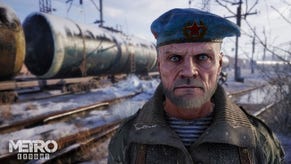
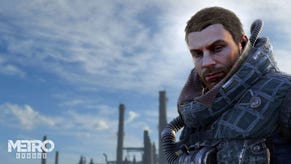
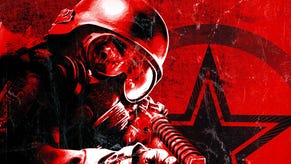
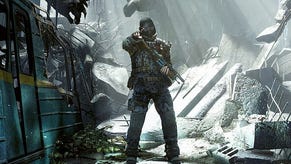



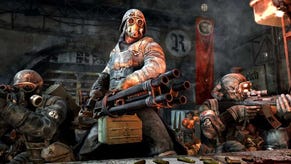
.jpeg?width=291&height=164&fit=crop&quality=80&format=jpg&auto=webp)
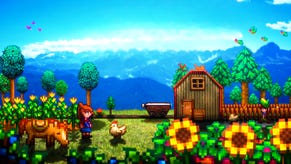

.png?width=291&height=164&fit=crop&quality=80&format=jpg&auto=webp)


